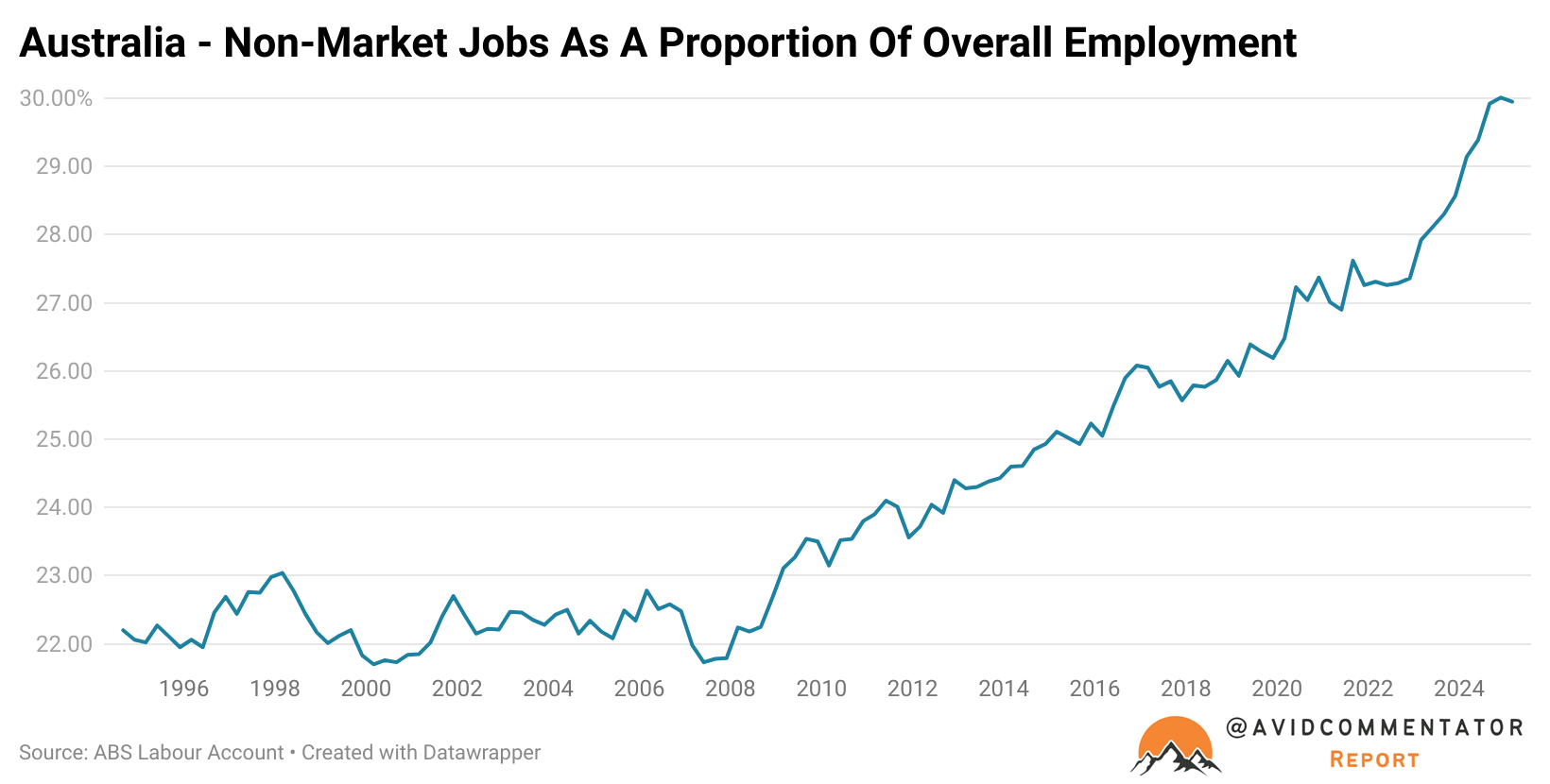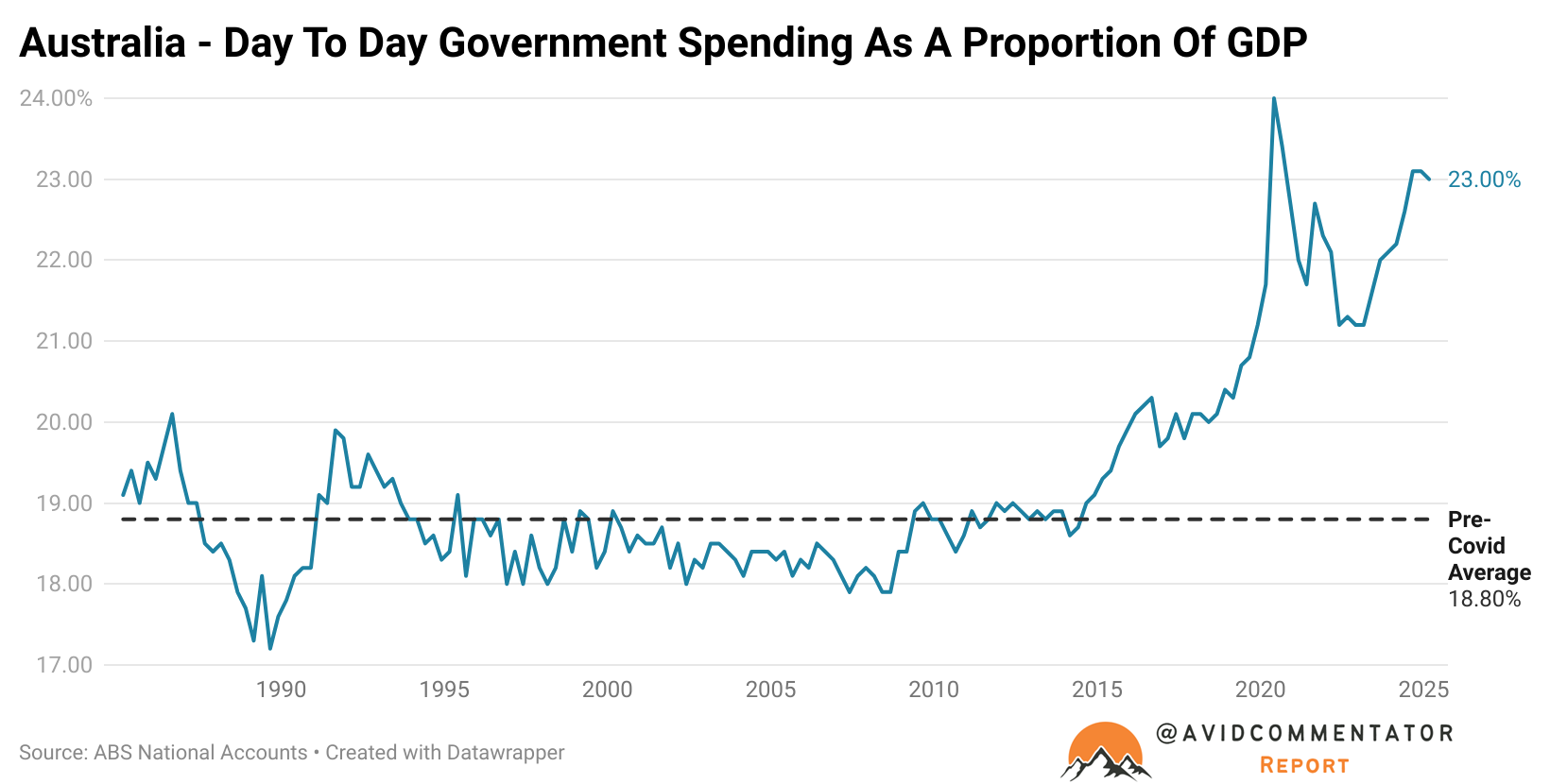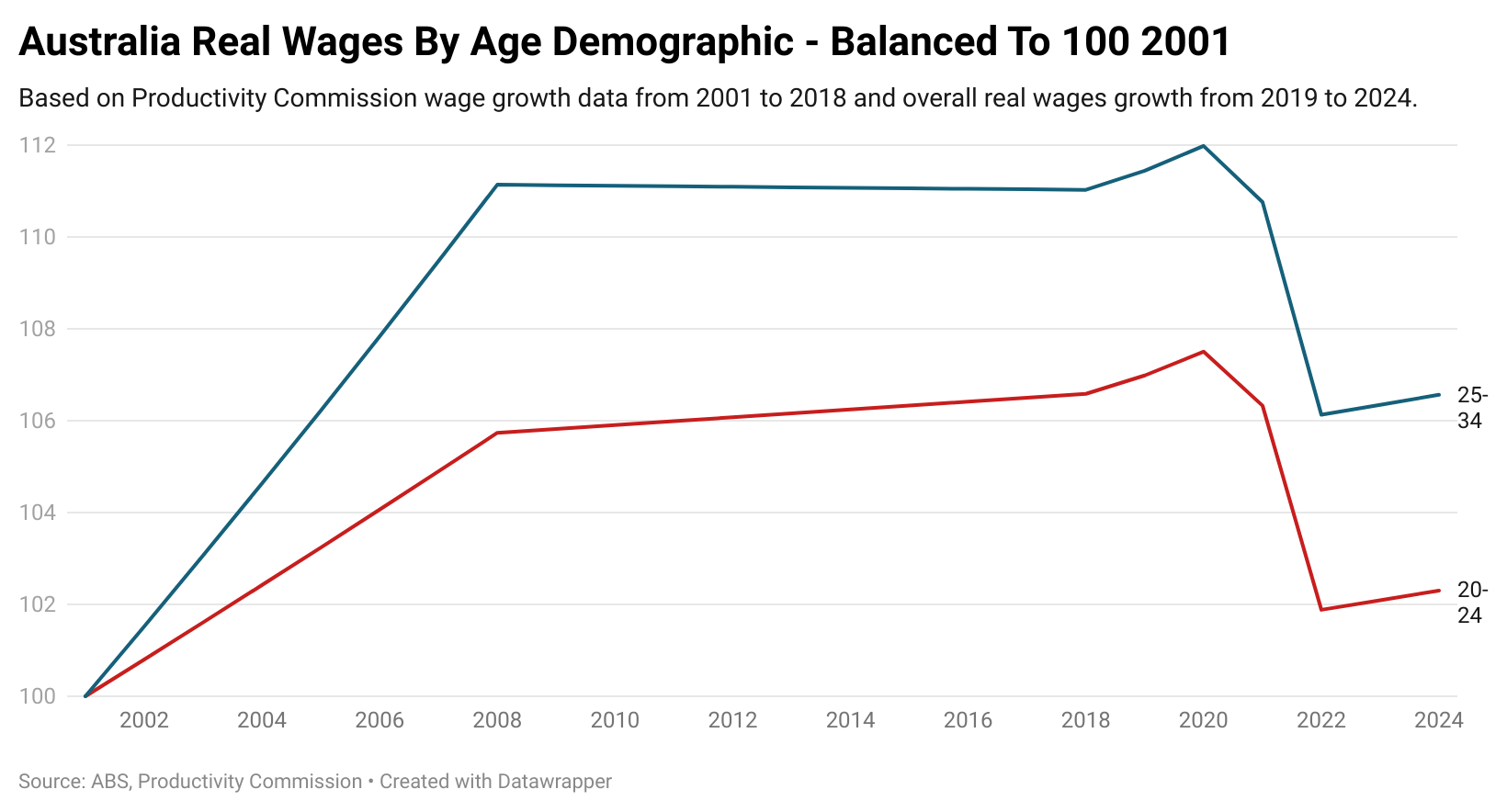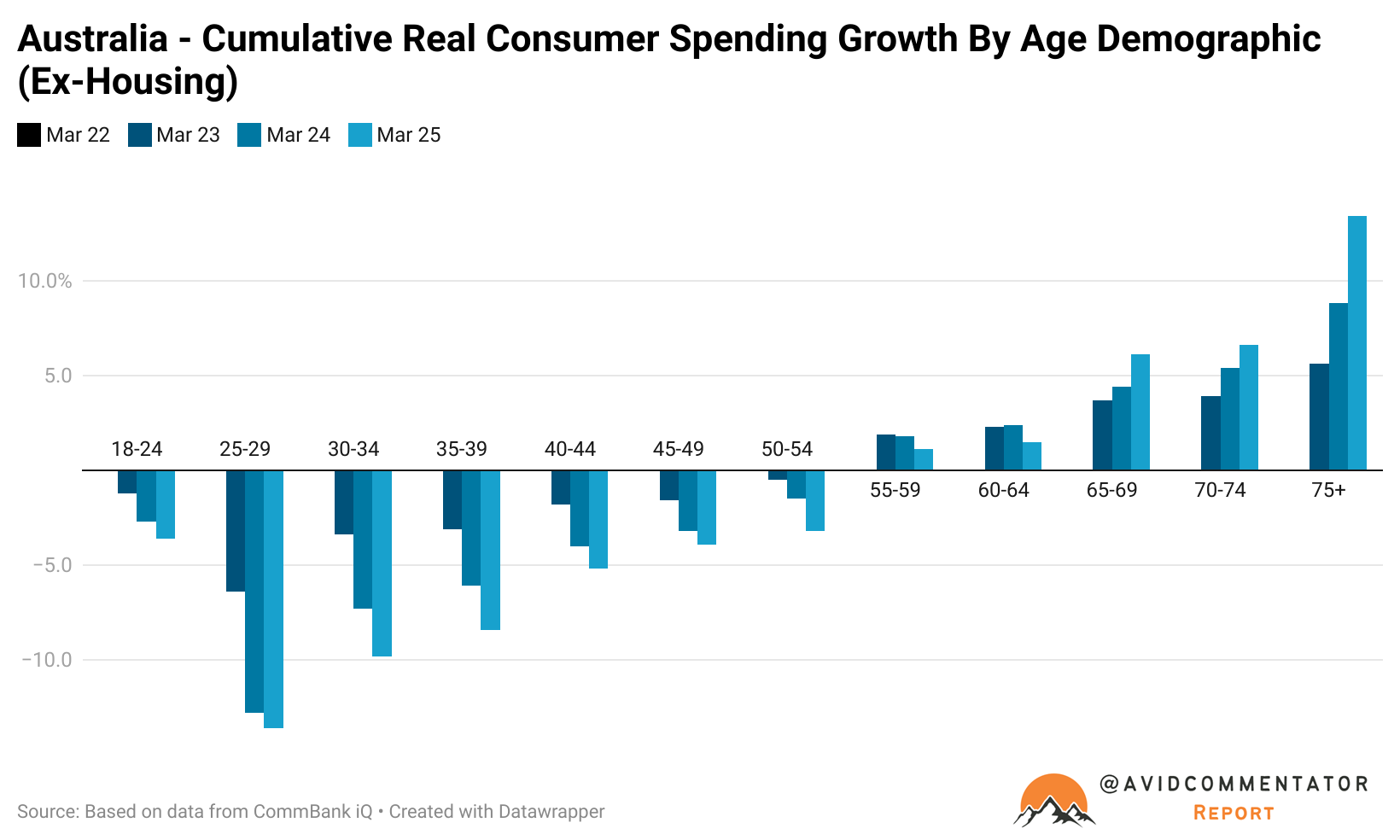In a recent tweet, Yellow Brick Road (Home Loans) Executive Chairman Mark Bouris made the case that Australia needs to act with confidence and for our leaders to put our nation first.
In this Bouris is very much correct; Australia needs leadership that looks at the true state of the economy and our society in the interests of all Australians and pursues the course of action that ensures broad-based prosperity.
Bouris went on to state:
“Why are we acting like we’re some fragile little economy that needs to play catch-up.”
It is certainly correct that Australia isn’t a little economy; depending on the source in question, it’s the 13th or 14th largest economy in the world.
However, Australia is indeed fragile and needs to catch up, which significantly contributes to the issues we currently face.
Government Is The Economy
While Australia famously avoided the technical recession that claimed the overwhelming majority of its developed-world peers during the Global Financial Crisis (GFC), in reality, it never fully recovered.
Per capita household spending growth for under 35s came to a close during this era, never to recover, in a near-unprecedented blow to one of the most vital demographics in the economy.
It also marked the end of the balance in employment growth between the market and non-market (public administration, education, healthcare, and social assistance) sectors of the economy.
Since then, more than half of all jobs have been in the non-market sectors of the economy, despite the fact that they made up just 22% of overall employment prior to the GFC.

Meanwhile, in the years since the tail end of the mining boom, the size of day-to-day government spending as a proportion of GDP has gotten larger and larger, despite sitting in a relatively tight range in the prior three decades.
This metric was specifically chosen instead of overall government spending as a proportion of GDP due to the fact that large levels of spending on investment in infrastructure can mask the increase in day-to-day spending.

Young People Have Been Shafted
Today, real wages for Australians aged 25–34 sit at roughly the same level as they were 20 years ago, back in 2005. For 20- to 24-year-olds, real wages are at late 2003 levels.

Meanwhile, their real household consumption excluding housing costs has already been weaker than pre-GFC levels and has been hit even harder during the current inflation cycle. The 25 to 29 age demographic has been hit particularly hard, with their real spending quite literally decimated. 
The Takeaway
Bouris rightly concludes that the nation’s leaders need to change their priorities and that we must confidently press on into the future.
We need our leaders to unite behind a simple set of principles and goals that they have previously set aside their differences to pursue.
While they may have different visions and see different pathways for achieving those goals, the end destination of the journey remains the same.
However, it also cannot be forgotten that the last two decades have created several very different Australias. Most notably, older demographics have experienced relatively robust consumption growth and improved fortunes in aggregate, following trends similar to those seen in more prosperous decades. In contrast, younger demographics have faced significant setbacks over an extended period, to such a degree that there may be no parallel in post-war Australian history.
With the recent revelation that the Australian economy has fallen even further down the ranks of Harvard’s Economic Complexity Index, now ranked 105, there also needs to be a push to diversify the economy and prepare for a return of the days when commodities were an element in our nation’s prosperity, not one of the major driving forces underpinning it.
Ultimately, Australia’s economy, while impressive on paper, has not served the interests of all its citizens or grown in a truly sustainable manner in a considerable amount of time.
Changing that will take a great deal of courage from policymakers, who have so far largely papered over the cracks in the fortunes of our once great nation.

